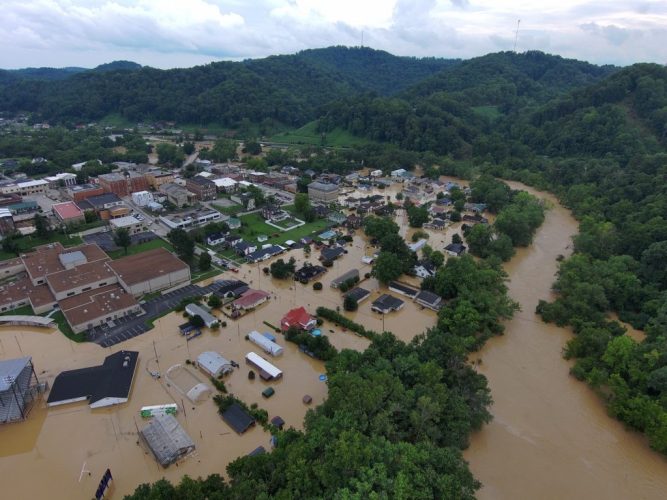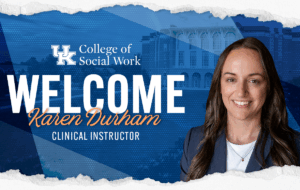Lexington, Kentucky (May 6th, 2024) – In an educational endeavor that merges scholarly research with pragmatic crisis management, Drs. Natalie Pope and Diane Loeffler have harnessed recovery efforts in the aftermath of the 2022 Eastern Kentucky floods into a transformative learning experience at the University of Kentucky College of Social Work (CoSW).
Loeffler and Pope are currently working on the following study, “Exploring the Experiences of Providing Services to Communities Affected by Natural Disaster.” This qualitative project is focused on learning from leaders within the non-profit and volunteer sector – looking specifically at how these service providers and their respective organizations have worked within affected Kentucky communities on flood relief efforts.
The 2022 flood in Eastern Kentucky was a catastrophic event that damaged/destroyed over 9,000 homes across several counties in Appalachian Kentucky. “Our work seeks to understand how leaders responded and how organizations have shifted to prioritize flood recovery related work,” Loeffler shared.
This study ventures beyond the statistics, uncovering the strategies and sacrifices of service providers at the forefront of flood relief operations. Its findings are anticipated to distill the core themes and valuable insights that emerge from the leaders’ responses and organizational adaptation to disaster relief.
What distinguishes this project is its immersive design. Dr. Pope embedded the study into her doctoral level Intro to Qualitative Research course, effectively enlisting her nine students (Ph.D. students from across campus) as co-investigators.
“This is not just about teaching research methods; it’s about applying them in real-time, community-based way,” said Dr. Pope. “This initiative has allowed students to contribute to the study conceptualization, conduct qualitative interviews, and contribute to preliminary data analysis, providing a rare experiential learning opportunity.”
The project is further enhanced by an artistic touch – each student created a ‘found poem’ from their interview transcripts. “The found poems are a powerful way to present our findings. They bring the experiences of these community leaders to life, providing emotive insights into the challenges they faced during the floods,” Dr. Pope explained.
“What we’re creating here is a mosaic of resilience and adaptation,” said Loeffler. “Our students are learning that research is not just about numbers and data; it’s about stories, emotions, and the human spirit overcoming adversity.”
This unique approach underscores the college’s dedication to providing an education that extends far beyond the confines of a classroom, emphasizing the real-world application of academic expertise to support local communities in need.






